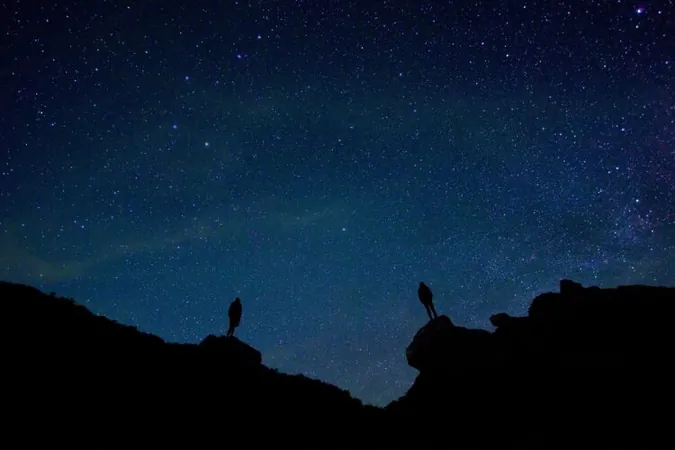
The Impact of Light Pollution on Interest in Astronomy: A Groundbreaking Study from University of Washington
2024-10-01
Author: Rajesh
Introduction
Imagine stepping outside on a clear, starry night, gazing up at the twinkling cosmos. It’s a moment filled with wonder that could influence future scientists and their career paths. Recent research from the University of Washington (UW) reveals that the ability to see the night sky free of light pollution isn’t just a picturesque experience—it may also ignite scientific curiosity and interest in fields such as astronomy.
The Study
In a compelling study published in Nature Scientific Reports, researchers Rodolfo Cortes Barragan and Andrew Meltzoff from the UW Institute for Learning and Brain Sciences explored the effects of light pollution on human emotions and behaviors related to science. Their findings suggest that areas with less artificial light contribute to a greater sense of awe and wonder towards the universe, which, in turn, can enhance interest in astronomy.
Research Genesis
Cortes Barragan elaborated on the genesis of their research, noting that environmental factors like light pollution directly impact human behavior, yet few studies had ventured into this intersection from a social science perspective. “We're specifically examining how exposure to the night sky influences emotions related to scientific inquiry,” Barragan explained.
Gateway to Sciences
Meltzoff reinforced the notion that astronomy often serves as a "gateway" to the sciences, especially for children. Many famed astronomers attribute their career paths to childhood experiences of gazing at the stars. The researchers sought to quantify these sentiments, delving into a Pew Research Center survey of over 35,000 U.S. residents. The survey included inquiries about individuals’ feelings of wonder regarding the universe, alongside physical measurements of light pollution across various regions.
Findings
The results were striking: Americans residing in areas with minimal light pollution expressed higher levels of wonder about the universe. This sense of awe was shown to correlate with increased interest in astronomy, demonstrated by behaviors such as searching for related terms on Google, sending their names to Mars with NASA, and even aspiring to become astronauts. In essence, the environment plays a pivotal role in shaping psychological experiences and tangible behaviors.
Equity Issue
One of the most crucial discussions stemmed from the idea that light pollution constitutes an equity issue. Barragan emphasized the need for equitable access to experiences that inspire scientific curiosity. “Children who grow up in environments devoid of visible stars miss out on formative experiences that could foster a passion for science.” Meltzoff added that stargazing can evoke profound questions in children, encouraging them to engage with subjects like space exploration or physics.
Broader Implications
The implications of this study extend beyond individual experiences. The researchers hope to inspire further interdisciplinary research, combining psychology and astronomy, which could ultimately lead to broader educational reforms. By highlighting the importance of the cosmos in shaping inquiry and curiosity, they aim to encourage more initiatives designed to alleviate light pollution and promote astronomical engagement.
Conclusion
In a time when science education faces numerous challenges, understanding the psychological impact of our environment is crucial. This research uncovers a vital connection between our night skies and our ability to nurture future scientists, urging communities to reconsider the importance of preserving dark skies for the enrichment of education and humanity’s innate curiosity about the universe.
Funding
The study received funding from prominent programs including the Stanford University DARE Fellowship, the National Science Foundation, and the Bezos Family Foundation. With these insights, the hope is to bridge gaps between scientific fields and provide every child with the chance to gaze upon the stars and ponder their place in the universe.

 Brasil (PT)
Brasil (PT)
 Canada (EN)
Canada (EN)
 Chile (ES)
Chile (ES)
 España (ES)
España (ES)
 France (FR)
France (FR)
 Hong Kong (EN)
Hong Kong (EN)
 Italia (IT)
Italia (IT)
 日本 (JA)
日本 (JA)
 Magyarország (HU)
Magyarország (HU)
 Norge (NO)
Norge (NO)
 Polska (PL)
Polska (PL)
 Schweiz (DE)
Schweiz (DE)
 Singapore (EN)
Singapore (EN)
 Sverige (SV)
Sverige (SV)
 Suomi (FI)
Suomi (FI)
 Türkiye (TR)
Türkiye (TR)